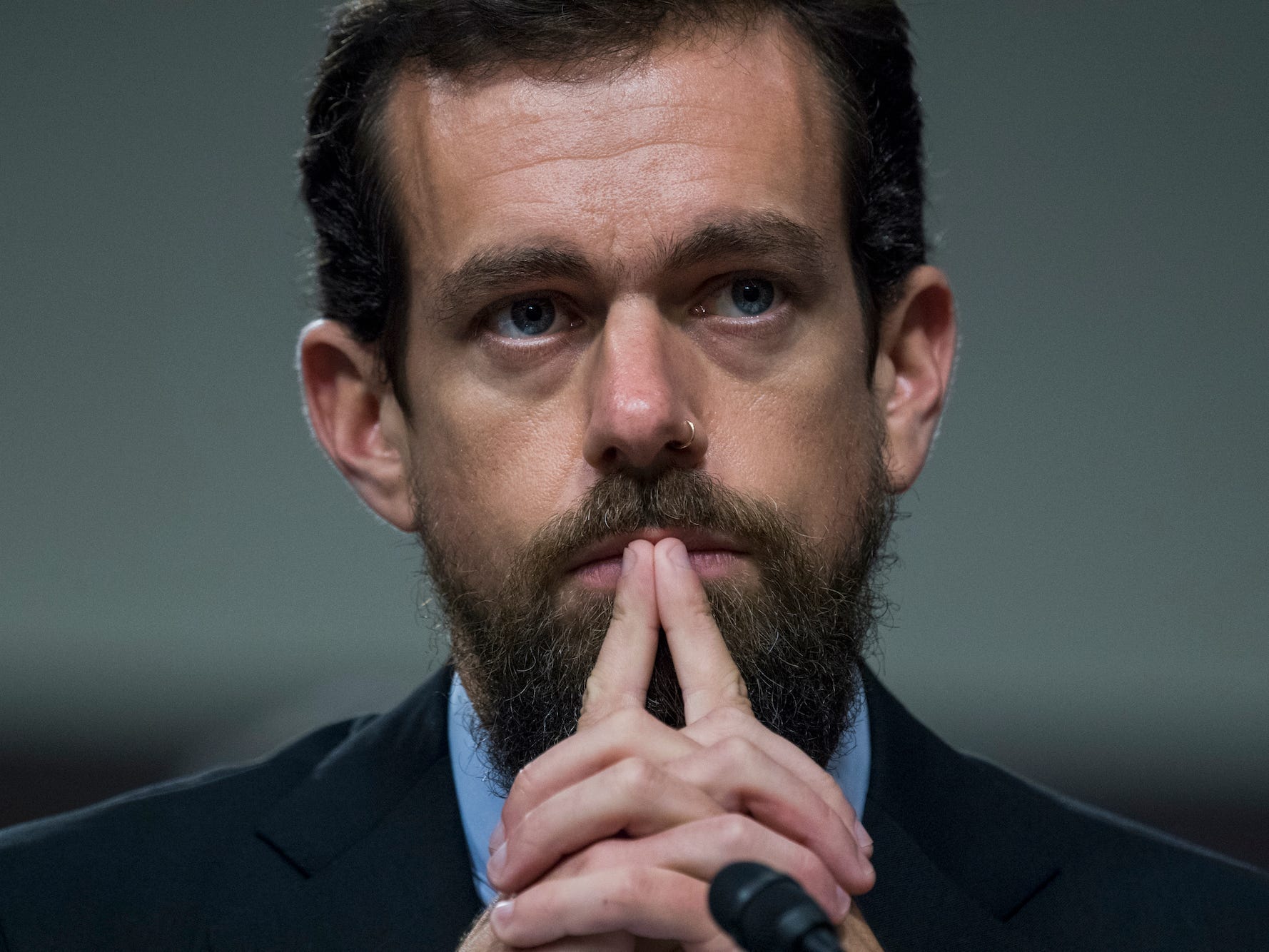
Tom Williams/CQ Roll Call
- Twitter CEO Jack Dorsey and Facebook CEO Mark Zuckerberg plan to warn lawmakers that stripping back Section 230 would hurt how we communicate on the internet.
- The remarks are part of the CEOs’ prepared testimonies for a virtual Senate hearing on Wednesday, which will focus on Section 230 protections.
- Democrats and Republicans have largely agreed that Section 230 should be updated, but conservatives have brought greater urgency to the revisions after Facebook and Twitter began fact-checking President Donald Trump’s posts in May.
- Dorsey and Zuckerberg will appear in front of lawmakers again on November 17 for a hearing regarding their companies’ handling of a dubious New York Post article about Joe Biden’s son.
- Visit Business Insider’s homepage for more stories.
Twitter CEO Jack Dorsey and Facebook CEO Mark Zuckerberg plan to warn the Senate that stripping back Section 230 could harm free expression on the internet, according to testimonies they prepared for a Senate hearing on Wednesday, which will focus on the protections.
Dorsey said stripping back Section 230 — an internet law that protects tech companies from being liable for content posted on their sites — could “collapse how we communicate on the Internet” and leave “only a small number of giant and well-funded” tech firms, according to his remarks, which Twitter shared with Business Insider.
Zuckerberg’s testimony, viewed by Business Insider, similarly said that “without Section 230, platforms could potentially be held liable for everything people say” and could “face liability for doing even basic moderation, such as removing hate speech and harassment that impacts the safety and security of their communities.”
Wednesday’s virtual hearing before the Senate Commerce Committee was scheduled in part to open a dialogue around Section 230 protections and potential revisions, and comes just days before the 2020 presidential election. Google CEO Sundar Pichai is also set to testify.
Democrats and Republicans have largely agreed that Section 230 needs to be revised, but President Donald Trump has amplified the fight to do so after Twitter and Facebook began fact-checking his posts in May. And now multiple branches of the US government are zeroing in on changing the law, as Business Insider’s Aaron Holmes explains.
Section 230 is part of an internet law created in the 1990s that prevents tech platforms from being treated as publishers, like newspapers. It means the likes of Facebook and Twitter aren't liable for content that people post on their sites, including hate speech and misinformation. Tech firms maintain that Section 230 is what protects free speech on the open internet.
A separate hearing before the Senate Judiciary Committee is slated for November 17 in which both Dorsey and Zuckerberg will appear again to discuss, in part, their companies' handling of a dubious New York Post article about Joe Biden's son. Republicans subpoenaed Dorsey in mid-October following his company's ban of the story, and he willingly agreed to testify on November 17.
Twitter initially failed to offer an explanation when it banned the story's URL in early October before saying the article violated its policies against how hacked materials are shared. Dorsey later issued an apology and said Twitter was "wrong" to have banned the story. Facebook's response to the New York Post article was similar: The company said it would restrict the reach of the article on its platform until a third-party fact-checked its contents. But Republicans latched onto the debacle from the get-go as proof that big tech is biased against conservatives, an often-disproven theory they have long pedaled.
You can read Dorsey's and Zuckerberg's testimonies in full below:

